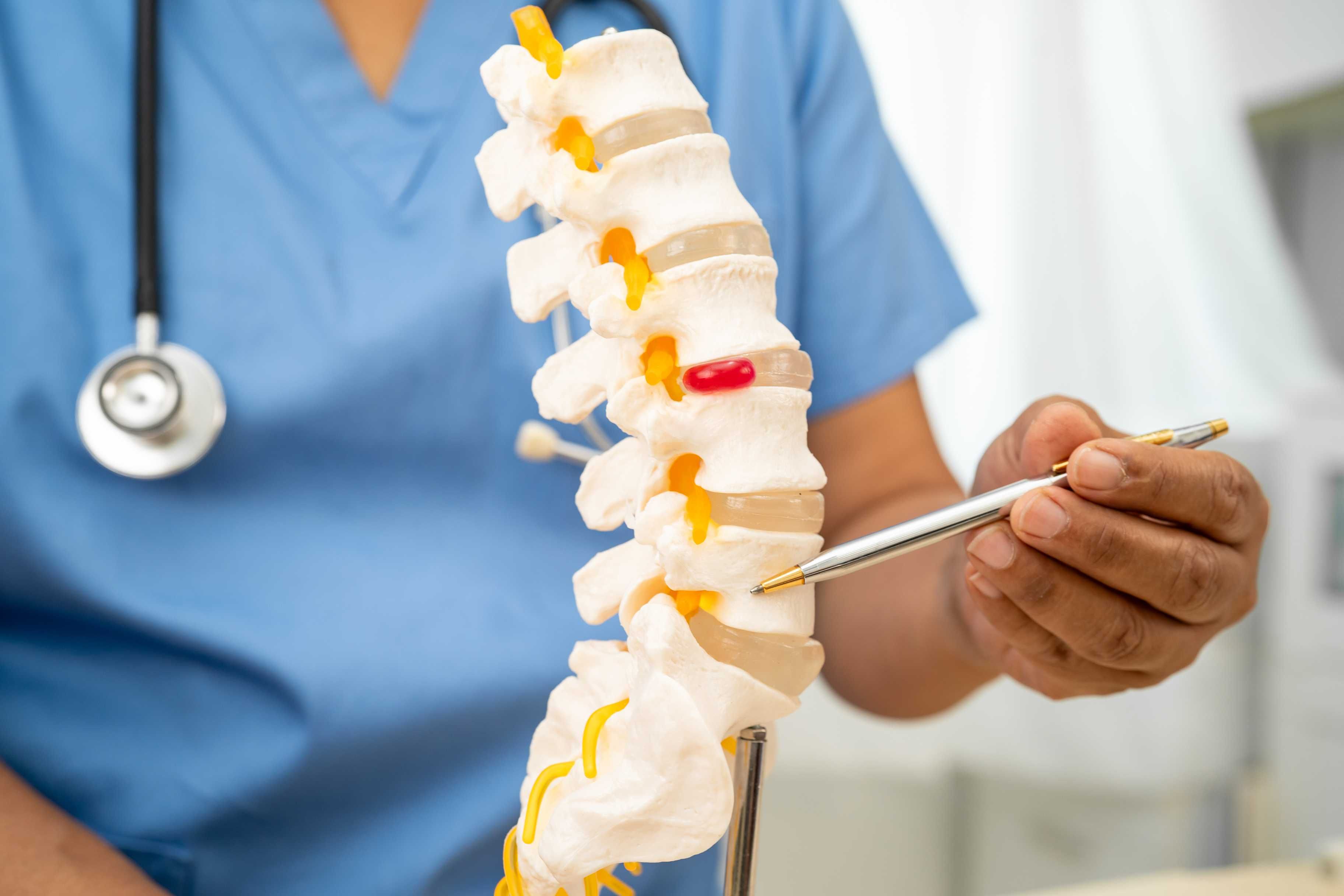Understanding Herniated Discs: Causes, Symptoms, and Treatment Options

Back pain is one of the most common health concerns among adults, and a herniated disc is often the culprit. If you’ve ever experienced sharp, radiating pain in your back, neck, or limbs, a herniated disc could be to blame. The good news? With expert care and the right treatment plan, relief is possible—often without surgery.
At MidAmerica Orthopaedics, our team of spine specialists, including Dr. Gurpal Pannu, are dedicated to diagnosing and treating herniated discs with advanced, patient-centered care. Whether you’re experiencing mild discomfort or debilitating pain, we’re here to help you understand your condition and explore the best path to recovery.
What is a Herniated Disc?
Your spine is made up of vertebrae cushioned by soft, gel-like discs. These discs act as shock absorbers, keeping your back flexible and pain-free. A herniated disc (also called a slipped or ruptured disc) occurs when the soft center of a spinal disc pushes through its tough outer layer. This can put pressure on nearby nerves, causing pain, numbness, or weakness.
Herniated discs can occur in any part of the spine but are most common in the lower back (lumbar spine) and neck (cervical spine).
Common Causes of Herniated Discs
A herniated disc can develop for a variety of reasons, including:
- Age-related wear and tear – Over time, discs naturally lose water content, making them more prone to tearing or rupturing.
- Repetitive movements – Jobs or activities that involve heavy lifting, bending, or twisting can increase the risk of disc herniation.
- Sudden injury – A fall, accident, or improper lifting technique can cause a disc to slip out of place.
- Genetics – Some individuals are naturally more prone to developing disc issues due to family history.
- Obesity – Extra weight places additional stress on the spine, making discs more vulnerable to damage.
Symptoms to Watch For
Herniated disc symptoms vary depending on the location and severity of the condition. Common signs include:
- Sharp or radiating pain – Pain may travel from the lower back into the legs (sciatica) or from the neck into the arms and shoulders.
- Numbness or tingling – Affected nerves may cause tingling sensations in the limbs.
- Muscle weakness – Weakened muscles in the back, arms, or legs can make daily activities difficult.
- Pain that worsens with movement – Coughing, sneezing, or bending may intensify discomfort.
If you’re experiencing any of these symptoms, seeking professional evaluation is key to preventing further complications.
How is a Herniated Disc Diagnosed?
At MidAmerica Orthopaedics, we take a comprehensive approach to diagnosing herniated discs. During your evaluation, our spine specialists, including Dr. Pannu, will review your medical history, conduct a physical exam, and may recommend imaging tests such as X-rays, MRIs, or CT scans to pinpoint the exact source of your pain.
Non-Surgical Treatment Options
The majority of herniated disc cases can be successfully managed without surgery. Our team prioritizes conservative treatments, which may include:
- Physical therapy – Targeted exercises to improve strength, flexibility, and posture.
- Medications – Anti-inflammatory drugs or muscle relaxants to reduce pain and swelling.
- Epidural steroid injections – Minimally invasive injections to reduce nerve inflammation and provide long-lasting relief.
- Lifestyle modifications – Adjustments to posture, activity levels, and weight management to prevent further strain on the spine.
When is Surgery Needed?
In cases where conservative treatments don’t provide relief or symptoms worsen, surgery may be recommended. Dr. Pannu and our spine team specialize in minimally invasive spine surgery techniques, such as microdiscectomy, which removes the portion of the disc pressing on the nerve. These procedures often result in faster recovery times and less post-operative pain compared to traditional surgery.
Take the First Step Toward Pain Relief
If you’re struggling with back or neck pain, don’t wait to seek help. The sooner you address a herniated disc, the better your chances of avoiding long-term damage. At MidAmerica Orthopaedics, our spine specialists are committed to providing personalized, cutting-edge care to help you get back to living pain-free.
Schedule a consultation today to discuss your symptoms and explore the best treatment options for your needs.

